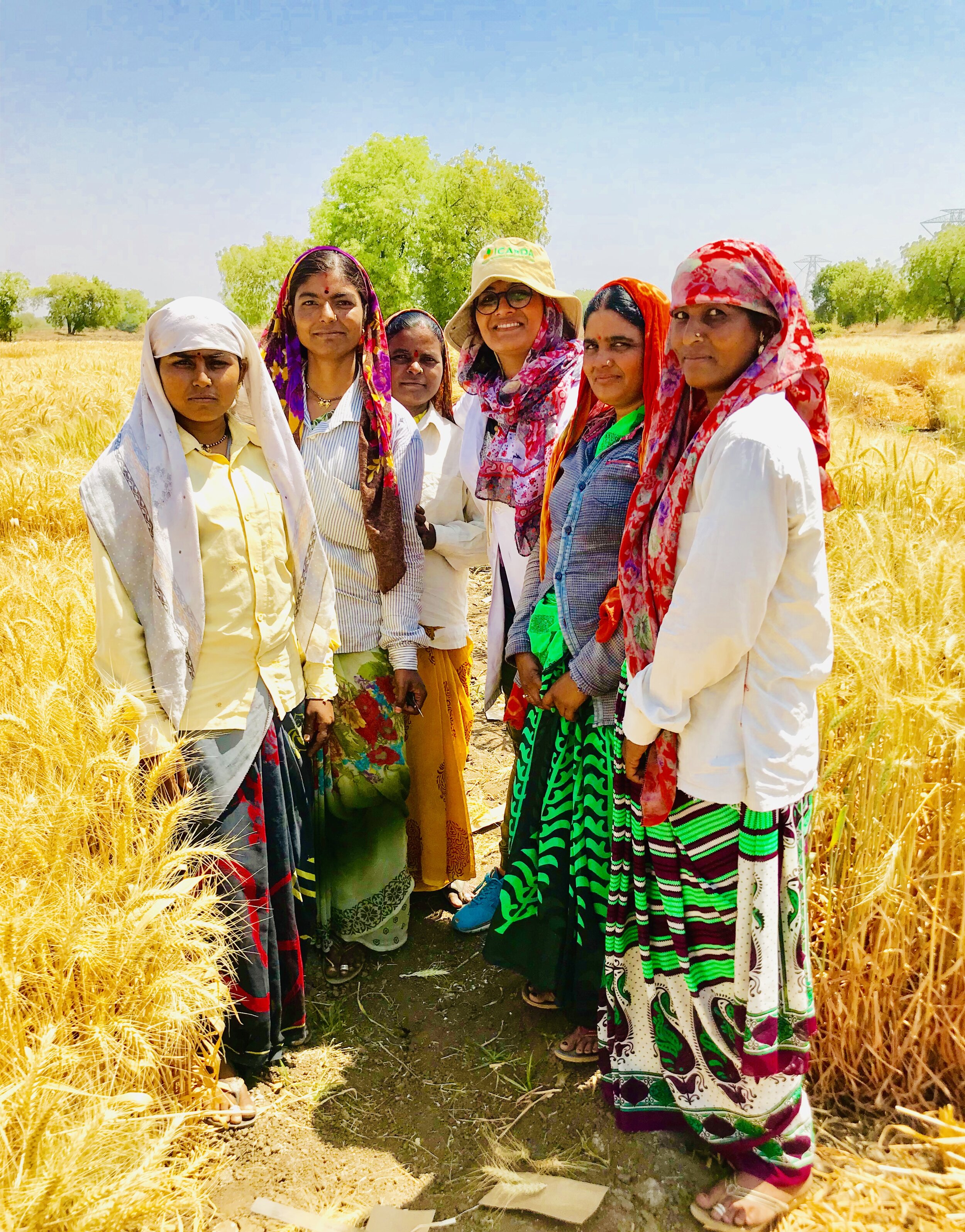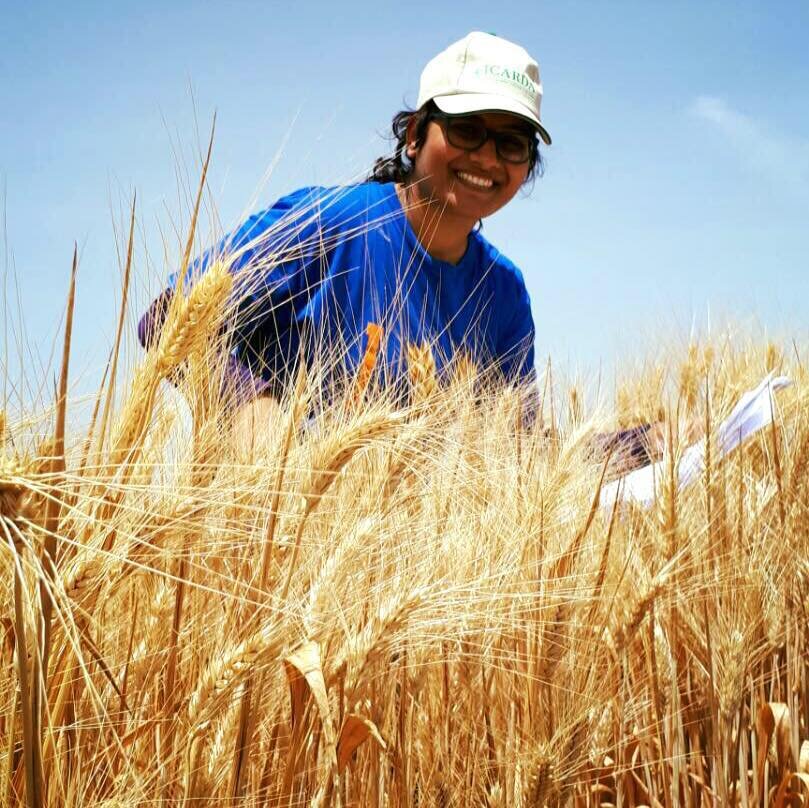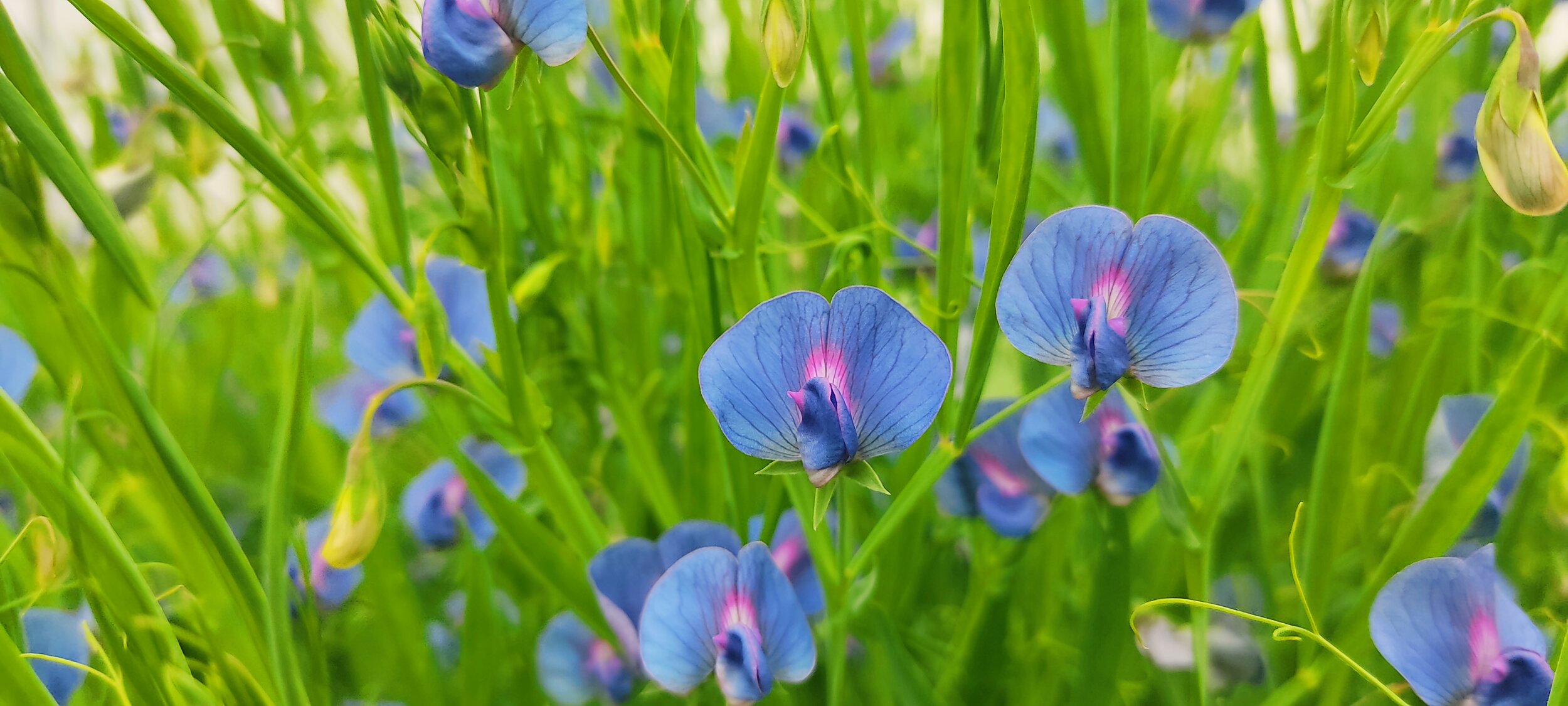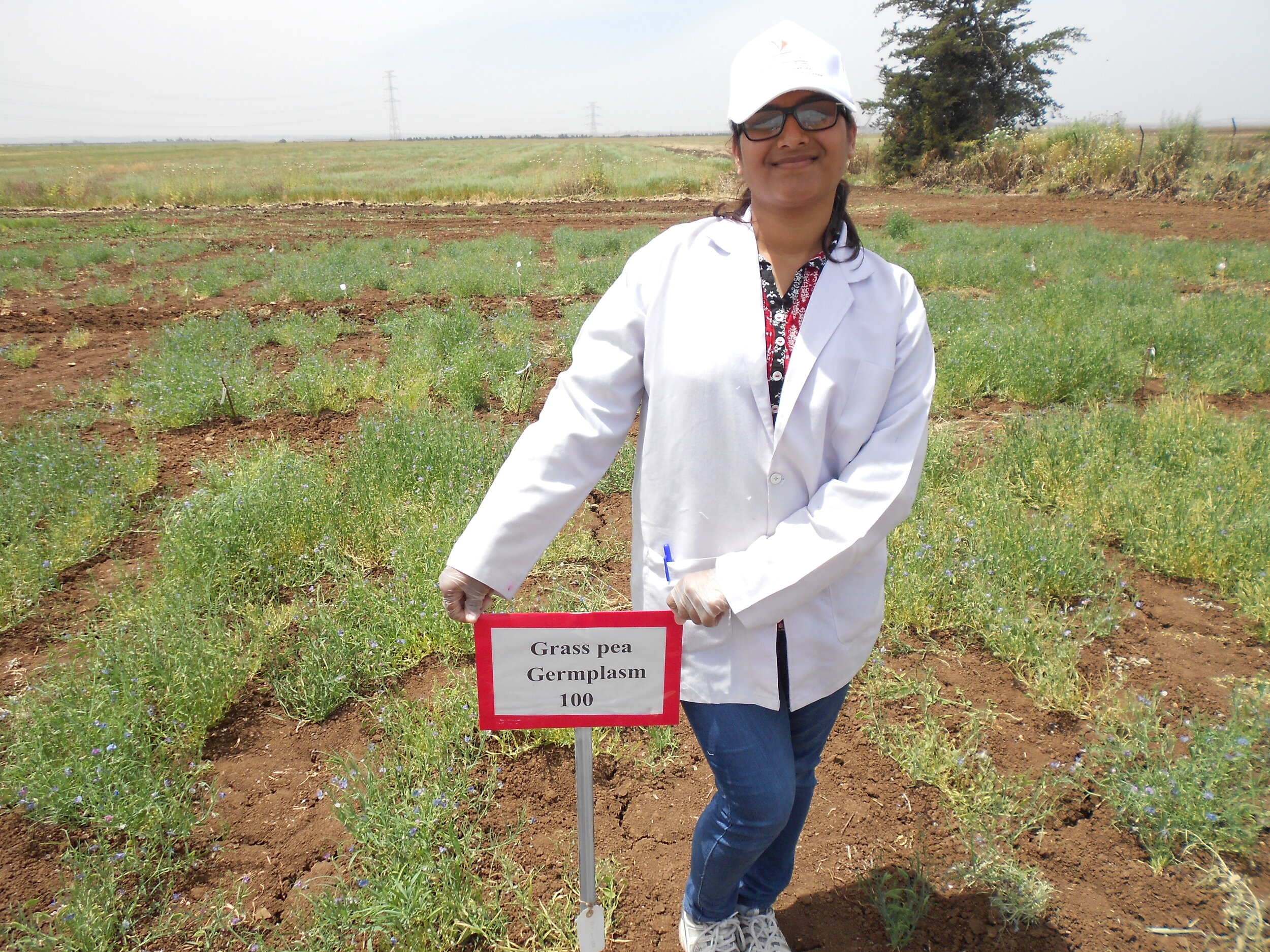Meet the Board - Priyanka Gupta
“I would like to raise awareness in the agricultural community that it is our responsibility to show youths the way forward and keep agriculture on the “front burner.” During the COVID crisis, we have seen an accompanying food crisis and disruption to the food system. I believe the needs and opportunities for future agricultural leaders are messages that we should spread widely and innovatively to encourage young agrarians to fight against hunger.”
We are pleased to introduce the newest board member of the Borlaug Training Foundation, Dr. Priyanka Gupta. Dr. Gupta is a crop scientist at the International Center for Agricultural Research in the Dry Areas (ICARDA).
We caught up with Dr. Gupta in this Q & A, following her appearance on the ‘Grounded by The Farm’ podcast. You can listen to that episode here.
Can you shed some light on your background and how you came into agriculture?
“I grew up in the north-central part of India where women are destined to get married in their early 20s. If they want to opt for a career, then teaching is the most popular profession. My life story would not have been different from this, but because of my curious nature and interest in learning my teachers and siblings encouraged me to pursue my educational and career goals.
Honestly speaking, I was not very clear about what my career would be. The turning point came when I joined the Indian Council of Agricultural Research (ICAR) and was awarded the ‘Bioversity Vavilov Frankel fellowship’ to work on an underutilized crop, grass pea, at ICARDA. Due to civilian unrest in Syria, ICARDA relocated to Morocco and built a new platform amid many challenges and this is when I joined ICARDA. Such challenges offered me a unique opportunity to interact with leading experts and gain insights into the latest international developments in agricultural science and technology. In addition, I was awarded a Monsanto (currently Bayer) Beachell-Borlaug International Scholars Program fellowship (during my Ph.D. on wheat breeding), which was like a blank book for me to draft my journey in agriculture. I still have memories of meeting with great agricultural leaders at the World Food Prize program and how their work has impacted society. These overall experiences have energized me and given me a global perspective to grow more. That’s where I truly found my passion to work in agriculture.
If I summarize my professional advancement so far, I have been continuously making efforts in agricultural science for the last 10 years, working at different national and international organizations on various projects with a focus on plant breeding, genetics, physiology, and biotechnology. As a young breeder, I worked for four years at CGIAR research centers (ICARDA and ICRISAT), two years at ICAR (Indian Council of Agricultural Research) in India, three years at the University of Bologna, Italy, and a short span as a commercial breeder at Mahyco seeds, India.”
What are your personal experiences with in-field agricultural training?
“Initially my research training was basic and focused on molecular laboratory techniques. Later it oriented towards physiology, agronomy, and statistics where I extensively acquired practical knowledge and experience in field-based plant breeding tools and techniques. Subsequently, I have acquired proficiency in experimental designs, data management, and statistical analysis of field research using various software and then trained in managing breeding programs in the Integrated Breeding Management System (BMS) and Phenome Networks.
Presently, I am learning more about Excellence in Breeding and management of different aspects of the breeding and testing pipeline, such as breeding product profile development to increase the genetic gain to adapt under climate change. In parallel, I have participated in international training and workshops.
During the COVID pandemic, I have been writing blogs and actively participating in webinars, podcasts, and social media platforms in addition to my ongoing research activities. My personal experience in ag-training taught me to keep going you must keep growing. Breeders must keep up with the latest developments, take risks, take responsibilities, make mistakes, find solutions and learn during the process.”
What are you currently working on?
“Presently, I am a legume breeder at ICARDA, Morocco working on the UPGRADE project to quantify the impact of climate change on grass pea by evaluating its germplasm against abiotic stresses. I will be joining the Grain Research Center (CÉROM) and University Laval, Quebec, Canada as a wheat breeder (post-doctoral fellow) working on ‘the protection of wheat across the Americas against the challenges of climate change’ by the end of 2021.”
“My personal experience in ag-training taught me that to keep going you must keep growing. Breeders must keep up with the latest developments, take risks, take responsibilities, make mistakes, find solutions and learn during the process.”
What is your ethic in training the next generation of hunger fighters?
“For this, I would like to draw your attention to 333. This trinity is my ethic to train the new generation of hunger fighters. Let me explain. In this world, 33% of people are more advanced, 33% are intermediate, 33% are beginners, and 1% are considered extraordinary.
At this stage, I am in the mid-early stage of my career and my outlook is this: Whatever I have acquired from my mentors (the advanced 33%) and those whose fight against hunger will be remembered for the ages (such as Dr. Norman Borlaug and Dr. Sanjay Rajaram) and with the support of my colleagues (the intermediate 33%, like me, who are on the same path) I will train the next generation of hunger fighters (3rd category of 33%).
Candidly, I will be content if at least 1% of these trainees rise up to feed the poor as hunger fighters.”
How do you feel about becoming the newest addition to the Borlaug Training Foundation Board?
“At the center of the Borlaug Training Foundation (BTF) are wonderful mentors who pick, push, and place the hunger fighters in the right direction. I feel truly privileged and incredibly grateful to be part of the BTF family. Certainly, joining BTF brings new responsibilities, but I am sure that my diverse background, expertise, and experiences will serve the purpose of the foundation. I believe as a young board member under the committee’s direction I will contribute to empowering the next generation and together we will work to create a hunger-free sustainable world.
I feel delighted and rewarded when I support and share my experience with students, particularly when I motivate female trainees. What saddens me these days is that youths are running away from agriculture. I have come across many situations where a farmer’s children do not want to continue farming as they think there are no stable income prospects.
Certainly, agriculture is 1% inspiration and 99% perspiration; however, there are many scholarships and government bodies encouraging youths to pursue modern aspects of agricultural studies. I am from a non-farming background and have benefitted personally and professionally from such scholarship programs.
I would like to raise awareness in the agricultural community that it is our responsibility to show youths the way forward and keep agriculture on the “front burner.” During the COVID crisis, we have seen an accompanying food crisis and disruption to the food system. I believe the needs and opportunities for future agricultural leaders are messages that we should spread widely and innovatively to encourage young agrarians to fight against hunger.”





